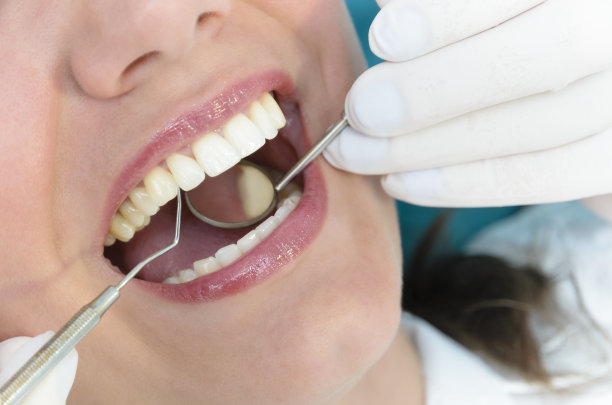Summary: Before undergoing dental implantation, it is vital to adhere to essential guidelines and precautions to ensure optimal results and enhance safety during the procedure. This article explores four critical aspects: the importance of thorough consultation and assessment with your dental professional, understanding the surgical process and recovery, maintaining proper oral hygiene, and considering lifestyle modifications post-implantation. Each section delves into the necessary steps and informs patients about what to expect, thereby promoting informed decision-making. By following these guidelines, patients can mitigate risks and significantly improve the outcome of their dental implants.
1. Importance of Consultation with Professionals

Before moving forward with dental implantation, it is crucial to have a comprehensive consultation with your dentist or oral surgeon. This initial meeting serves to discuss your medical history and specific dental needs. Communication is vital as patients should openly share any health concerns, medications, or conditions that might influence their treatment.
A detailed examination will include various diagnostic tests such as X-rays, CT scans, or 3D imaging. These assessments help to determine the health of the jawbone and guide the surgical plan. Understanding the anatomy and condition of the jaw ensures that the dental implants will anchor securely and function efficiently.
Additionally, your dentist can outline the various types of implants available, making it easier for you to choose the option best suited for your situation. This personalized approach allows for tailored solutions that align with your health profile and expectations.
2. Understanding the Surgical Process and Recovery
Patients should also familiarize themselves with the dental implantation procedure. The surgery usually involves placing a titanium post into the jawbone, which will serve as the root for the replacement tooth. Knowing the steps involved can alleviate anxiety related to the surgery. Typically, the procedure is performed under local anesthesia, ensuring discomfort is minimized.
The immediate postoperative phase is equally crucial; listening to your dentist’s post-surgery care instructions can significantly influence recovery. Patients are advised to avoid strenuous activities, adhere to prescribed medications, and maintain follow-up appointments to monitor healing.
Understanding what to expect during recovery is vital, as some swelling and discomfort are normal. Familiarizing yourself with signs of complications can lead to prompt medical attention if necessary, enhancing the overall success rate of the implantation.
3. Maintaining Proper Oral Hygiene Practices
Once the dental implants have been placed, maintaining excellent oral hygiene is paramount for long-term success. Good oral health not only aids in preventing infection but also ensures longevity for the implants. Patients are encouraged to brush and floss their teeth diligently and use any recommended antimicrobial mouth rinses.
Regular dental check-ups after the implantation are essential for professional cleaning and monitoring of the implants condition. Your dentist will provide guidance on the appropriate products and techniques specifically tailored to care for dental implants.
If patients follow these hygiene practices, they will significantly improve the chances of avoiding complications such as peri-implantitis, an inflammation that can lead to implant failure. By developing a routine, you ensure the beauty and functionality of your dental implants are maintained for years to come.
4. Considering Lifestyle Modifications Post-Implantation
Post-implantation, certain lifestyle adjustments may be necessary to facilitate proper healing and avoid complications. For instance, avoiding smoking is crucial, as tobacco use can hinder blood flow to the gums, reducing the success rate of the implants significantly. If you smoke, consider seeking support to quit before and after the surgery.
Dietary modifications may also play a role in recovery. Soft foods are recommended in the initial healing phase to minimize stress on the implant site. As healing progresses, reintegrating various foods while observing how your gums respond is essential.
Finally, managing overall health through regular exercise and a balanced diet can aid in faster recovery. These lifestyle changes not only foster a conducive environment for dental implants but can also improve your general well-being.
Summary:
In summary, the journey to getting dental implants begins with an essential consultation, understanding the surgical process, diligent oral hygiene practices, and potential lifestyle adjustments. Each of these elements is critical for ensuring the success and longevity of your dental implants. Commit to these guidelines for an optimal outcome that supports your oral health and enhances your quality of life.
This article is compiled by Vickong Dental and the content is for reference only.
Vickong Dental
Vickong Dental is a large medical group established in Hong Kong in 2008 by professors from well-known medical universities in Guangdong and Hong Kong, as well as medical doctors from key national '985' universities (including Master's supervisors and senior professors). The chain of branches brings together expert dentists with PhDs and Master's degrees from Hong Kong and Mainland China, committed to providing high-quality dental treatment.
"Vickong Dental Practices the University Motto of 'Healing and Serving Society,' with a Stable Operation for Sixteen Years. It Has Been honored with Hong Kong Enterprise Leaders's Choice,' and is a Global Trusted Implant Center for the Nobel Implant System. Recommended by Hong Kong Metro Broadcast and Guangdong Television, it Serves Customers from Over Thirty Countries and Regions, Gaining the Trust and Favor of Citizens from the Guangdong-Hong Kong-Macau Greater Bay Area and Surrounding Cities.

Thousands of customers' unanimous praise
The most recognized and highly recommended dental service by customers in the Guangdong-Hong Kong-Macau Greater Bay Area
We Ensure You Receive Detailed Care and Attention Here
Hong Kong standards, Shenzhen prices, Your Trusted English-speaking dentists

Vickong Dental Medical-Grade Instrument Disinfection Process
Vickong Dental Medical-Grade Instrument Disinfection Process

Vickong Dental Chain: A Warm and Comfortable Environment for Treatment






Appointment Hours

Q&A
Why choose Vickong Dental?
Vickong Dental practices the university motto 「Medicine to Benefit Society」, with each branch bringing together highly qualified dentists with doctoral and master’s degrees from Hong Kong and the Mainland, and has maintained seventeen years of steady operation。Recipient of 「2024 Hong Kong Enterprise Leaders Brand」, 「2025 Hong Kong Enterprise Leaders Brand」, a Nobel Biocare Global Trusted Implant Center, and a brand recommended by Metro Radio Hong Kong and Guangdong TV。
To date, we have served customers from more than thirty countries and regions,earning exceptionally high word-of-mouth recognition and trusted recommendations from residents across the Guangdong-Hong Kong-Macao Greater Bay Area and surrounding cities
We have eight major branches in Zhuhai、Shenzhen,and a consultation and service assurance center in Hong Kong,so you can book a free consultation at any time for any questions,which is very reassuring.
If I do not accept the quotation after the CT scan, will I be charged??
No! As long as the actual treatment has not started, you will not be charged any fees.
Will there be any additional charges during the treatment process?
No, there won’t be any additional charges. Before treatment begins, we will clearly explain the treatment plan and its corresponding fees. Only after the patient agrees and signs the consent form will we proceed with the dental service.
Can I pay in Hong Kong dollars?
Yes. Vickong Dental accepts payment in Hong Kong dollars. The amount will be converted based on the exchange rate of the day, and the applicable rate will be clearly communicated to you in advance.
Can I reschedule my appointment at any time?
Yes. Please contact us via **WeChat** or **WhatsApp** as early as possible, providing your original appointment time and details, along with your preferred new date and time slot for rescheduling.













